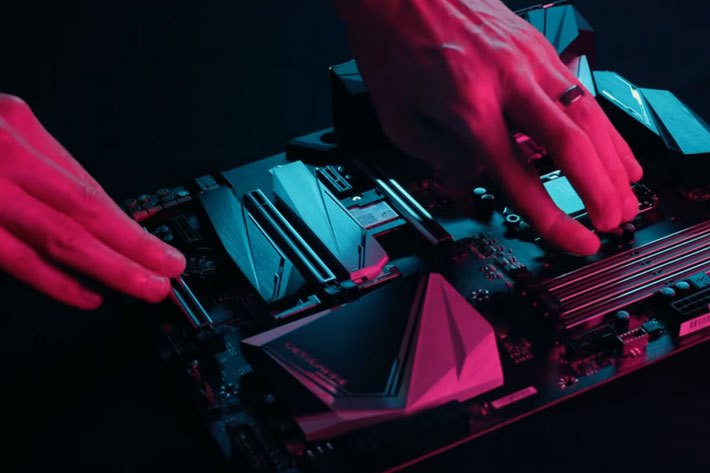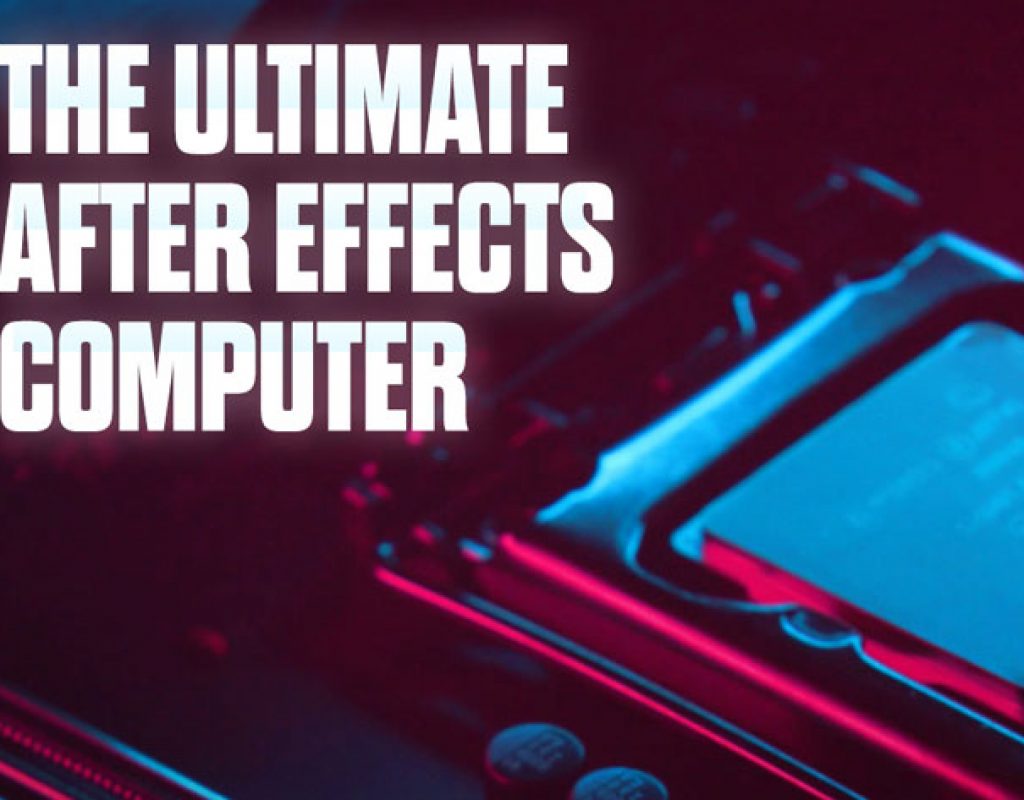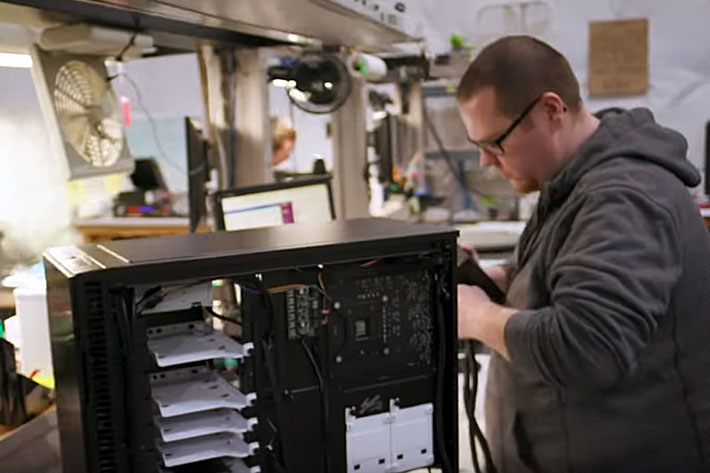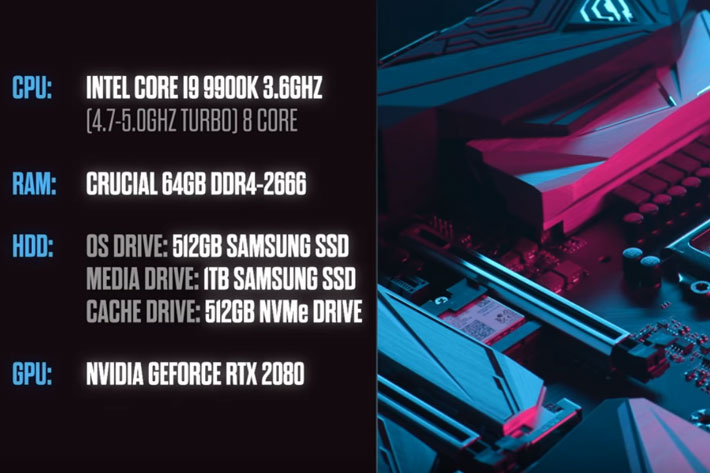
Adobe After Effects loves powerful computers, so Puget Systems and School of Motion decided to build the ultimate PC for the software. An adventure documented by filmmaker and director Mike Pecci.
We all want to build the fastest machine for editing video, and there are even places online where people post their specs and benchmarks, in an unofficial bragging rights competition: “my machine is faster than yours”. Cinebench, from Maxon, is the cross-platorm test suite used as a standard to many of these benchmarks, and recently the company introduced a version suited for modern computers, Cinebench Release 20, which reflects the overall advancements to CPU and rendering technology in recent years. But that’s another story, although it connects with this one through the changes recent developments brought to the way workstations for video editing are built.
Here, we share how Puget Systems partnered with School of Motion to design and build the ‘world’s fastest computer for Adobe After Effects. The two companies have teamed up to address one of the top issues facing content creators and motion design artists in the School of Motion community, “how can I make After Effects run faster?”
A PC named Johnny Cache
It all started with a question, as so many experiences do. Eager to tackle the question that has crossed the mind of every After Effects artist in the industry, the School of Motion team reached out to Puget Systems, who has quickly earned a reputation for building extremely fast, well sourced and thoroughly tested workstations for content creators, with the challenge of designing and building a system that would outperform any system on the market today. The result was the Puget Systems “Johnny Cache” system.
https://youtu.be/8_xmXM_XMS4
“It was clear that we were about to go on a pretty unique journey with Puget Systems – a quest to build the world’s fastest After Effects computer,” said Joey Korenman, CEO of School of Motion. “So we enlisted the help of director Mike Pecci to document the process, and the result is a very sleek video, an in-depth article, and computer building guide. In addition to the help from our friends at Puget Systems, the team at Adobe also chimed in with some really useful input. This turned out to be an epic project that exceeded our expectations. It was full of geeky terms, puns, and coffee…so much coffee.”
The specs of the After Effects workstation
The result of this epic journey, after extensive research, input from the School of Motion community, and thorough benchmarking using the Puget Systems After Effects Benchmark, has given a name: The Puget Systems “Johnny Cache”. The ultimate After Effects workstation has the following specs:
- CPU: Intel Core i9 9900K 3.6GHz (4.7-5.0GHz Turbo) 8 Core 95W
- RAM: Crucial 64GB DDR4-2666 (4x16GB)
- GPU: NVIDIA GeForce RTX 2080 8GB Dual Fan
- Hard Drive 1: 512GB Samsung 860 Pro SATA SSD
- Hard Drive 2: 512GB Samsung 970 Pro PCI-E M.2 SSD
- Hard Drive 3: 1TB Samsung 860 EVO SATA SSD
- Price: $4,223.64
Discover how to win this PC
The video published here, shot and directed by Mike Pecci, takes you through the key moments of the experience, but if you want to know more, the whole adventure is documented in an in-depth article from School of Motion.
One final note, if you live in the United States: Puget Systems will give away the custom “Johnny Cache’ Ultimate After Effects System to one lucky winner. To know more about the whole system and how to win this lightning-fast After Effects computer visit the article page at School of Motion, and follow the link there, to receive rules and instructions on how to enter. The winner will be drawn on March 29th, 2019.

Filmtools
Filmmakers go-to destination for pre-production, production & post production equipment!
Shop Now
















